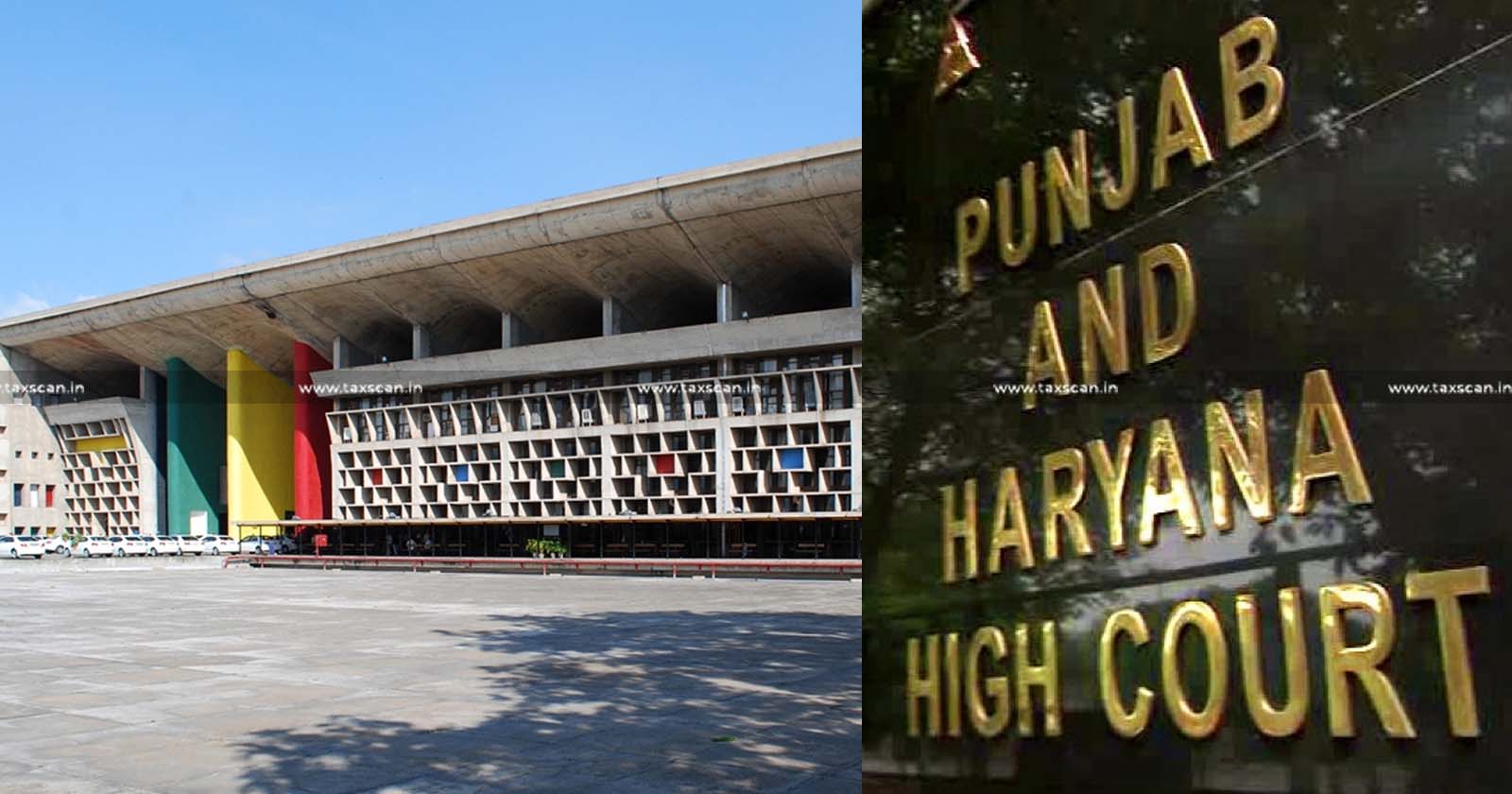Punjab and Haryana High Court quashes ECIR filed by Enforcement Directorate u/s 3 r/w Sec. 4 of PMLA Act [Read Order]
Punjab and Haryana High Court quashed First information Report ( FIR ) filed by the enforcement directorate underSection 3 read with Section 4 of the Prevention of Money Laundering Act, 2002

punjab and haryana high court – ECIR 2024 – Directorate of enforcement – pmla acts – Taxscan
punjab and haryana high court – ECIR 2024 – Directorate of enforcement – pmla acts – Taxscan
In a recent case, the Punjab and Haryana High Court quashed the First Information Report ( FIR ) filed by the enforcement directorate under Section 3 read with Section 4 of the Prevention of Money Laundering Act, 2002.
Petitioner Chetan Gupta filed the petition under section Section 482 Criminal Procedure Code before the court against the ECIR filed by the Enforcement directorate under Section under the Prevention of Money-Laundering Act .
The facts of the case was that, the vigilance bureau of Ludhiana registered FIR under Section 409, 420, 465, 467, 471, 201, 120-B of IPC and Section 7, 8, 9, 13(1) (c), 13(1)(d) read with Section 13(2) and 14 of the Prevention Corruption Act, 1988 pertaining to alleged payment of illegal gratification in the setting up and development of Ludhiana City Centre passed by Improvement Trust, Ludhiana (LIT) in the year 1999.
While treating the said FIR registered by Vigilance Bureau, Ludhiana as scheduled offense, impugned ECIR was registered by ED, Jalandhar against the Petitioner for alleged commission of offense under Section 3 read with Section 4 of PMLA in the year 2013.
During the course of investigations, the ED had been issuing various summons in purported exercise of powers under Section 50 (2) & (3) of PMLA.
Thereafter the vigilance Bureau, Ludhiana through its SSP filed a Supplementary Challan/Cancellation Report under Section 173(8) of Cr.P.C. before the Special Court (Vigilance), Ludhiana/Trial Court which was seized of the maJer pertaining to the FIR No. 5/ Scheduled Offense. In the said Supplementary Challan/Cancellation Report, it was clearly stated that no substan*ve evidence or fact came on record to prove any offense as alleged.
Thus petitioner oner etc. had been discharged in the scheduled offense alleged to have been committed by him, on the basis of which the ECIR in question was registered by the respondent ED. Therefore, the proceedings initiated against the petitioner under the PMLA were rendered non-est.”
The petitioner’s grievance is that despite such closure, the Enforcement Directorate continued to call the petitioner. Thus Aggrieved by the action of the Enforcement Directorate not to close the proceedings and to continue summoning him, the petitioner had come up before this Court under Section 482 CrPC mainly because, as per the scheme of PMLA, the offense under Section 3 of PMLA is interlinked, intertwined, and interwoven with the scheduled offense and therefore, the offense or investigations under PMLA have no independent existence.
Vikram Chaudhri, counsel for petitioner argued that in the instant case, not only has the petitioner oner been discharged in the Scheduled Offense, but the Trial Court has also accepted the Supplementary Report/Closure Report under Section 173(8) of Cr.P.C. which shows that the prosecution did not dispute the lack of substance in the accusa+on. Thus, in the absence of the commission of a scheduled offense in the present case, the question of the generation of proceeds of crime and subsequent laundering thereof can never arise.
S.V. Raju, Sr. Adv., Addl. Solicitor General of India for counsel for Enforcement Directorate submitted that the petitioner is only trying to escape from the clutches of Law, and due to his malafide intention, he had not cooperated at all with the Enforcement Directorate by not appearing before it as provided by the PMLA.
E.D.'s counsel further contended that the petition was filed under section 482 of Cr. P.C. is not permissible for the reliefs as claimed in the petition. The ends of justice would be better served if the process under PMLA were allowed to be completed.
It was observed that the full form of ECIR is the “Enforcement Case Informa+on Report,” and the full form of the FIR is the “First Informa+on Report.” The difference between the two is that ECIR is a term given to itself by the Enforcement Directorate through some administrative order, whereas, to the contrary, FIR is a crea+on of a statute under Section 154 CrPC, 1973.
Thus the bench further observed that “The petitioners have been acquitted in the primary predicate offense in the present case. Consequently, secondary evidence, i.eThe offense being prosecuted by the Enforcement Directorate, would also go automatically. Thus, the complaint filed by the Enforcement Directorate has to be closed along with consequential proceedings. Once the complaint is closed, the Enforcement Directorate can keep such records in their ECIR record because if, later on, such closure, charge, or acquittal is reversed, the objection can be reopened”.
After analyzing the facts and arguments of both parties, a single bench of Justice Anoop Chitkara quashed the ECIR filed by Enforcement Directorate under Section 3 read with Section 4 of Prevention of Money Laundering Act, 2002.
To Read the full text of the Order CLICK HERE
Support our journalism by subscribing to Taxscan premium. Follow us on Telegram for quick updates


